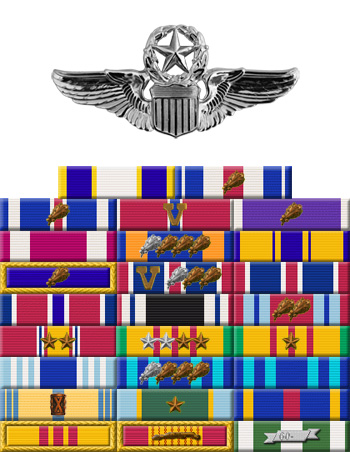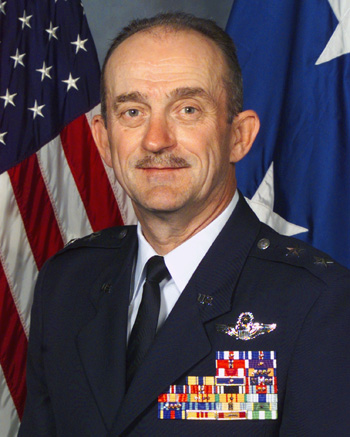
|
Edward J. Mechenbier |
 |
|||
| Rank, Service | ||||
Major General O-8, U.S. Air Force |
||||
| Veteran of: | ||||
|
||||
| Tribute: | ||||
Ed Mechenbier was born in Morgantown, West Virginia, in 1942. He entered the U.S. Air Force Academy in 1960 and was commissioned on June 3, 1964. Mechenbier went through pilot training at Vance AFB, Oklahoma, and was awarded his pilot wings in August 1965. He went on to train in the F-4 Phantom II, and after a tour in England he began flying combat missions out of Da Nang Air Base, South Vietnam in December 1966. On June 14, 1967, Captain Mechenbier was shot down over North Vietnam while flying his 80th combat mission of the war. He was immediately captured and taken as a Prisoner of War. After spending 2,076 days in captivity, he was released during Operation Homecoming on February 18, 1973. After his return, Mechenbier flew with the fighter branch of the 4950th Test Wing at Wright-Patterson AFB, Ohio. He resigned his regular commission in June 1975, and joined the Ohio Air National Guard where he flew the F-100 Super Sabre and the A-7 Corsair II for the next 16 years. General Mechenbier served as the commander of the 162nd Tactical Fighter Squadron with the Ohio ANG from July 1984 to June 1991. In June 1991, he transferred to the Air Force Reserve where he served with the Joint Logistics Systems Center, Headquarters Air Force Material Command, Aeronautical Systems Center, finally as Mobilization Assistant to the commander of Headquarters Air Material Command until his retirement on June 30, 2004. Gen Mechenbier is a Command Pilot with over 3,700 flying hours and has flown the F-4 and RF-4 Phantom II, F-100 Super Sabre, A-7 Corsair II, T-39 Sabreliner, and the C-141 Starlifter. |
||||
|
||||

